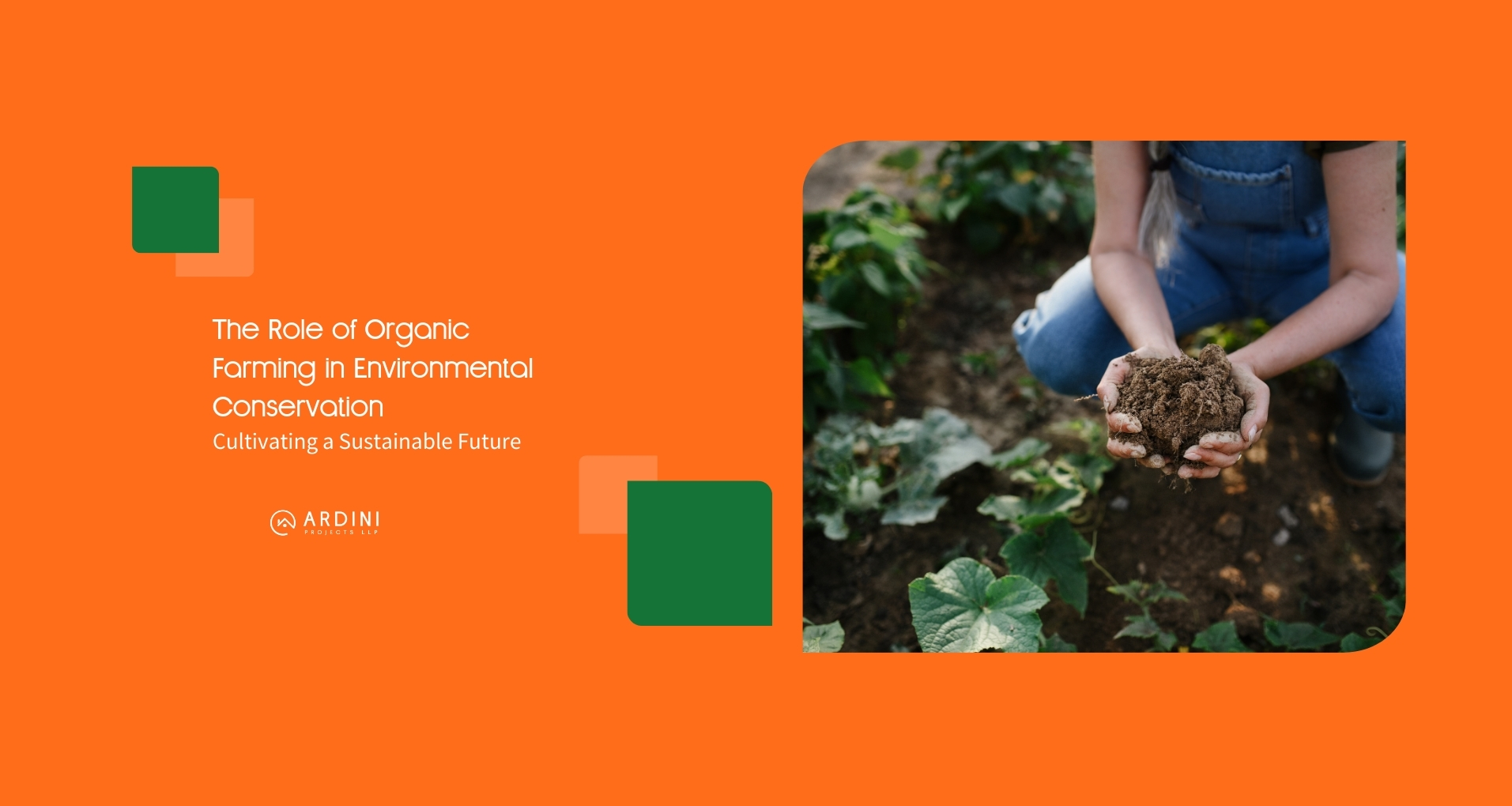The Role of Organic Farming in Environmental Conservation

The role of organic farming in addressing our planet's environmental challenges is significant. Climate change, land degradation, and biodiversity loss threaten the future of our food systems and ecosystems. In this context, organic farming emerges as a beacon of hope, offering a path towards a more sustainable and environmentally friendly way of cultivating food.
What is Organic Farming?
Organic farming is an agricultural system that prioritizes natural processes over synthetic inputs like chemical fertilizers and pesticides. It focuses on building healthy soil, fostering biodiversity, and promoting a holistic approach to land management.
Environmental Benefits of Organic Farming
The benefits of organic farming go far beyond the production of healthy food. By adopting organic practices, we can significantly contribute to environmental conservation:
- Enhanced Soil Health: Organic farming practices like crop rotation, cover cropping, and composting help improve soil structure, fertility, and water retention capacity. Healthy soil serves as a natural reservoir for carbon dioxide, aiding in its absorption from the atmosphere and helping to alleviate the impacts of climate change.
- Reduced Water Pollution: Synthetic fertilizers and pesticides can contaminate water sources through runoff and leaching. Organic farming practices minimize this risk, protecting our valuable freshwater resources.
- Biodiversity Promotion: Organic farming practices create a more diverse and natural environment for plants and animals. This fosters a healthy ecosystem that supports pollinators, beneficial insects, and natural pest control mechanisms. Imagine a day outing in Bangalore where you can witness a vibrant ecosystem thriving on organic principles!
- Combating Climate Change: Organic farming techniques like reduced tillage and the use of cover crops help to store carbon in the soil, mitigating the effects of climate change. Additionally, organic farms typically have a lower overall carbon footprint compared to conventional farms.
Embracing Organic Practices: The Ecowood Habitat Example
Ecowood Habitat by Ardini Projects LLP is a prime example of how organic farming principles can be integrated into a sustainable living community. Located near Bangalore, Ecowood Habitat offers residents the opportunity to invest in agricultural land in India while contributing to environmental conservation.
Here’s how Ecowood Habitat embraces organic practices:
- Focus on Organic Produce: The community prioritizes cultivating organic fruits, vegetables, and other crops, ensuring a healthy food source for residents and reducing reliance on chemical-laden produce.
- Composting and Manure Management: Organic waste is composted and used as natural fertilizer, promoting soil health and reducing reliance on synthetic fertilizers.
- Sustainable Water Management: Techniques like rainwater harvesting and drip irrigation are employed to conserve water, a precious resource in India.
The Future of Organic Farming
The shift towards organic farming isn’t merely a passing trend; it’s an essential transition towards a sustainable future. With the world’s population expanding and food demand rising, organic farming emerges as a viable solution, safeguarding the environment for future generations.
Investing in a Sustainable Future:
By investing in managed farmland that prioritizes organic practices, like those offered at Ecowood Habitat, you can help conserve the environment in many ways:
- Supporting Sustainable Practices: Your investment directly supports adopting organic farming methods, promoting a healthier planet.
- Reducing Your Carbon Footprint: Choosing organic produce grown using sustainable practices helps to reduce your overall environmental impact.
- Building a Legacy: You become part of a movement towards a more sustainable food system, leaving a positive legacy for future generations.
Considering Investing in Farmland?
Ecowood Habitat offers a range of farm plots near Bangalore, from 1 acre to larger options, catering to diverse needs and budgets. Additionally, managed farmland services are available, ensuring optimal land management and maximizing your investment’s potential. Whether you’re seeking a farm house in Bangalore for occasional retreats, a sustainable investment opportunity, or simply a way to reconnect with nature, managed farmland at Ecowood Habitat presents a compelling option.
Conclusion
The role of organic farming in environmental conservation is undeniable. By promoting soil health, reducing pollution, and fostering biodiversity, organic practices offer a path towards a healthier planet. Let’s embrace organic farming and invest in a sustainable future, one seed at a time. Explore the possibilities of managed farmland in Bangalore and consider joining the community at Ecowood Habitat. Remember, every choice we make, from the food we eat to how we cultivate our land, can shape the future. Choose wisely, choose organically, and choose a sustainable future.
- Tags : Organic Farming, Sustainable Farming
